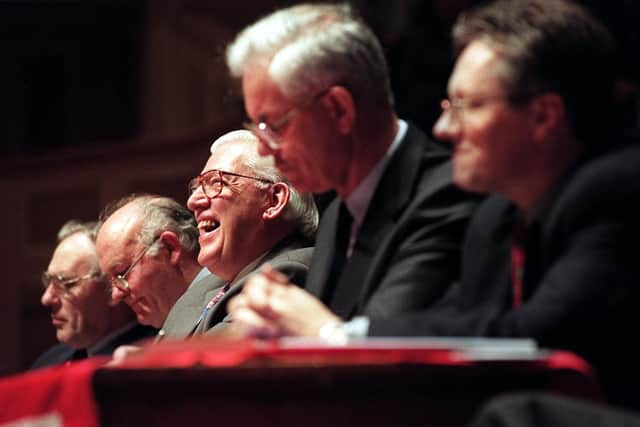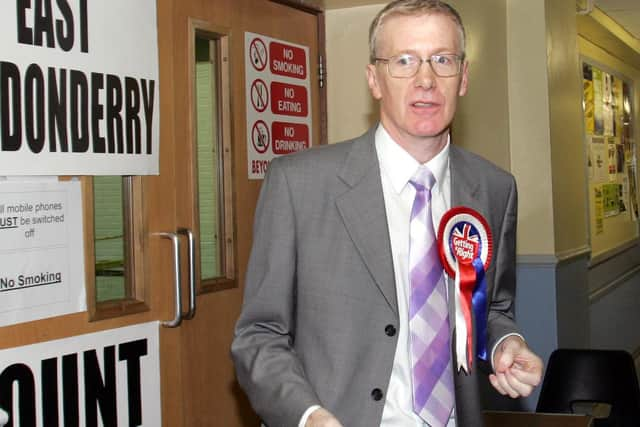State Papers: David Campbell predicted Gregory Campbell’s victory over Willie Ross
and live on Freeview channel 276
Mr. Campbell also suggested the SDLP might have faced problems in Derry if John Hume decided not to stand in Foyle, a scenario that ultimately didn’t come to pass.
He correctly predicted Pat Doherty would secure a gain for Sinn Féin from the UUP in West Tyrone and that Martin McGuinness was a ‘safe’ bet for Sinn Féin in Mid Ulster.
Advertisement
Hide AdAdvertisement
Hide AdA confidential memorandum was forwarded to Jonathan Powell, chief-of-staff of the British Prime Minister Tony Blair who had asked for information on the UUP's assessment of 'likely electoral difficulties in the General Election and other Elections next year'.


The file, dated July 24, 2000, gives an assessment of each constituency.
Mr. Campbell noted that the UUP did not stand in Foyle in 1997 and gave the following assessment for the following year: “John Hume sitting MP. Main challenge would be from Mitchell McLaughlin of Sinn Féin. Problems for the SDLP if Hume does not stand again.”
As it happened Mr. Hume did stand in the June 2001 General Election and received 50.2 per cent of the vote to Mr. McLaughlin’s 26.6 per cent.
Advertisement
Hide AdAdvertisement
Hide AdDavid Trimble’s former chief-of-staff believed the UUP would be in trouble under Gregory Campbell’s challenge for the DUP.


"William Ross defends his seat with a majority of 3,794 over Gregory Campbell of the DUP. Ross is not a popular Member of Parliament and is vehemently anti-Agreement.
"This seat could well fall to the DUP if our pro-Agreement vote does not support Ross. It is assumed that Ross is standing again however there may well be a challenge to him for the Party's selection,” was Mr. Campbell’s view.
Gregory Campbell ultimately took 32.1 per cent of the vote with Willie Ross trailing on 27.4 per cent.
Advertisement
Hide AdAdvertisement
Hide AdMartin McGuinness was likely to retain his seat in Mid Ulster, Mr. Campbell observed.
“[We] must assume that Martin McGuinness is safe particularly with McCrea [William of the DUP] moving to concentrate on South Antrim. Possibility for the UUP to increase its presence however,” was his verdict.
Mr. McGuinness received 51.1 per cent of the vote in Mid Ulster in 2001. But the UUP didn’t even run a candidate.
Mr. Campbell was also right about West Tyrone.
"We won this seat with William Thompson [in 1997] on the basis of the evenly split SDLP/Sinn Féin vote. Looks like Pat Doherty of Sinn Féin will win this seat with a comfortable majority,” he declared, and Mr. Doherty became MP after securing 40.8 per cent of the vote to Mr. Thompson’s 30.4 per cent.
Advertisement
Hide AdAdvertisement
Hide AdCampbell was a key advisor to the former First Minister and leader of the UUP David Trimble and was one of the party’s main negotiators at the time of the Good Friday Agreement. He served as chairman of the UUP from 2005 to 2012 but resigned from the party after the 2017 General Election.
He has been chairman of the Loyalist Communities Council (LCC) since 2015.
